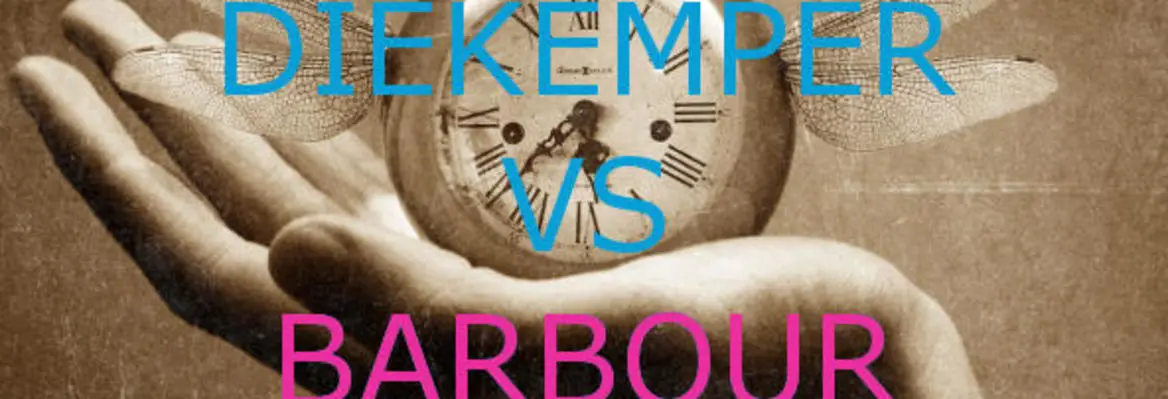Read part 1: Joseph Diekemper sets out the hypothesis that the present is nothing but a border between the past and the future.
Philosophers and physicists often think about time in very different ways. In fact, among themselves so do physicists; it is not easy to find two who agree in all details or even in their overall concepts. In this note, I will mention some of the ways in which my views differ from those of Joseph Diekemper and also from mainstream physics.
Diekemper's starting point is that time, "if it exists at all, must be such that it passes". His reason for this claim is "the pervasiveness of our experience of the passage of time". Now many arguments in philosophy and science arise because key words are used without sufficiently precise definitions. I think we need to define “passage” and “time”, or rather their meaning in the combination "experience of the passage of time". In talking about experience, we need not, indeed, distinguish the senses: any and all will do. I will couch my arguments mainly in visual terms.
I illustrate my experience of the passage of time by recalling the hurly-burly of the HowTheLightGetsIn festival in Hay-on-Wye on that beautiful day in May last year when Joanna Kavenna, Diekemper, and I took part in the debate, The Dance of Time. In any one instant, I saw shapes and colours held together in my field of vision as in a snapshot. These 'snapshots' followed one another in a steady stream. In my mind's eye I could lay them out in a row like movie stills. If I ask myself what 'experience of the passage of time' means, that's basically it. The very fact that I have been able to watch the Dance of Time video reassures me that you, the reader, will find my account makes sense.
There is a wonderful thing about the world: geometry. What I see when I open my eyes is a two-dimensional field of view. But our experiences since birth and our genetically structured brains have taught us how to 'place' the shapes seen in two dimensions as objects in three-dimensional space and understand and even anticipate how the objects move relative to each other. That's Roger Federer's supreme gift.
I suggest that "experience of the passage of time" is just shorthand for the kind of thing I have described. You never see time and its passage. Time does not meet you in the street or join you for lunch at Hay as scythe-bearing death. And it isn't a river. What you experience is change of things.















Join the conversation